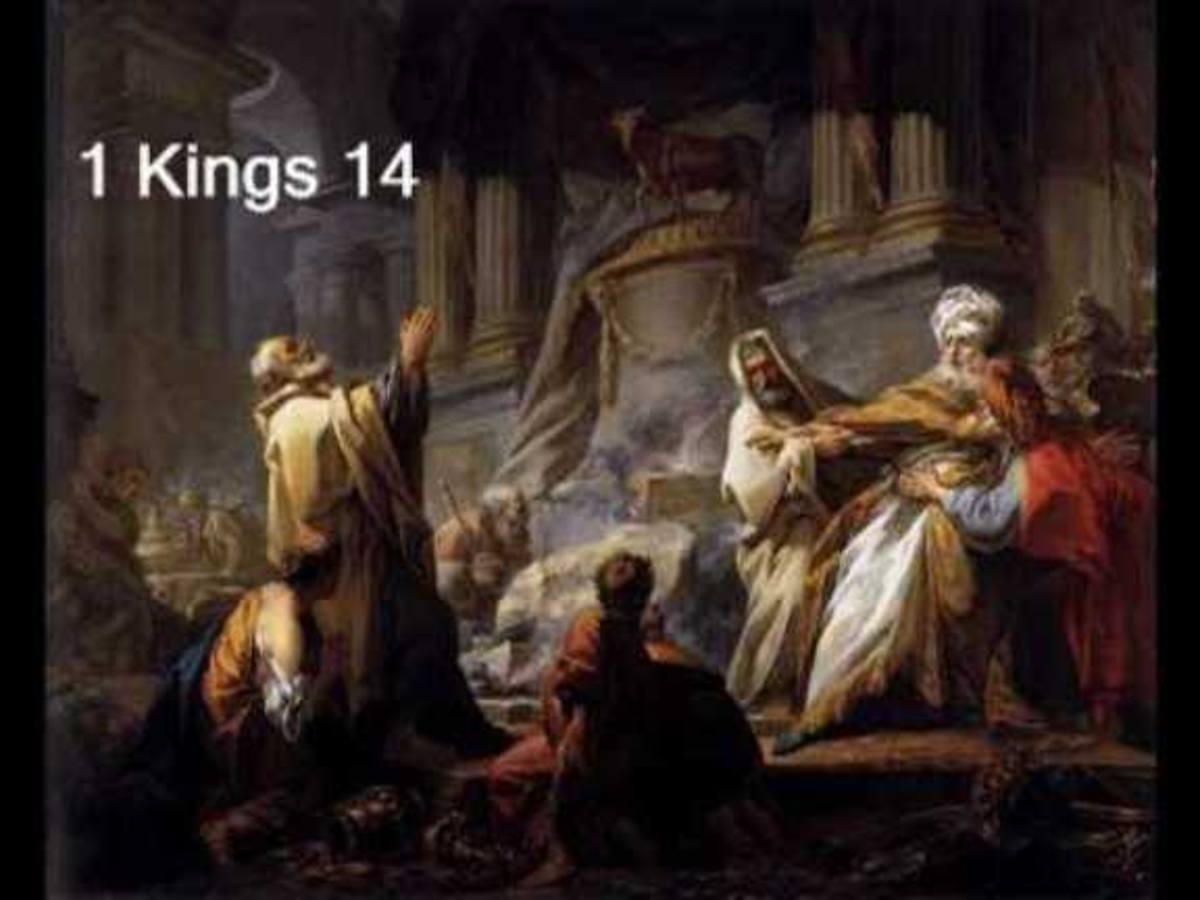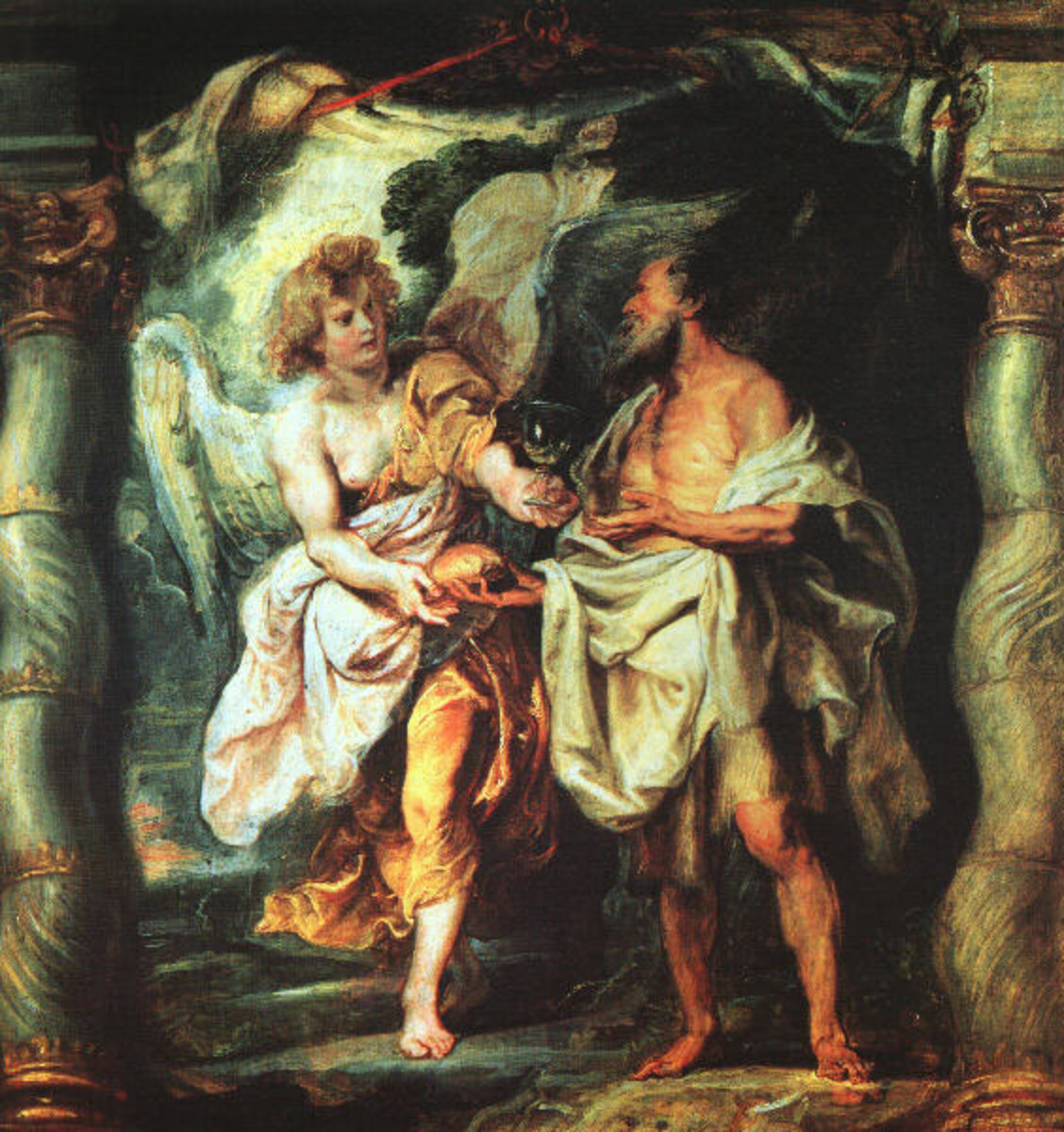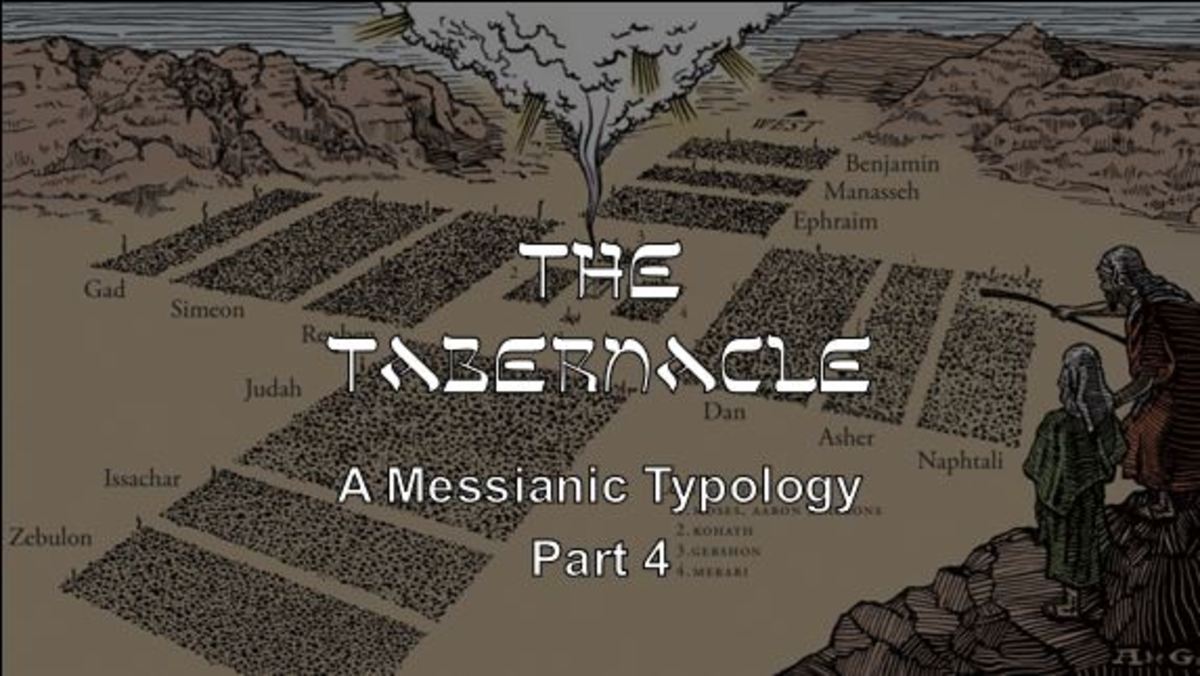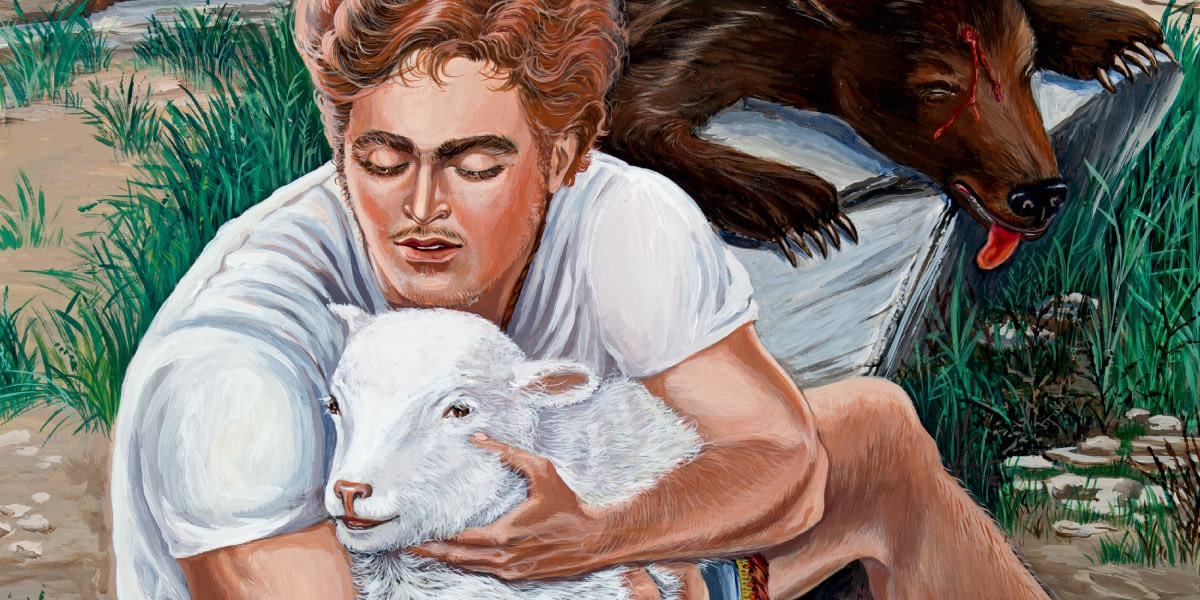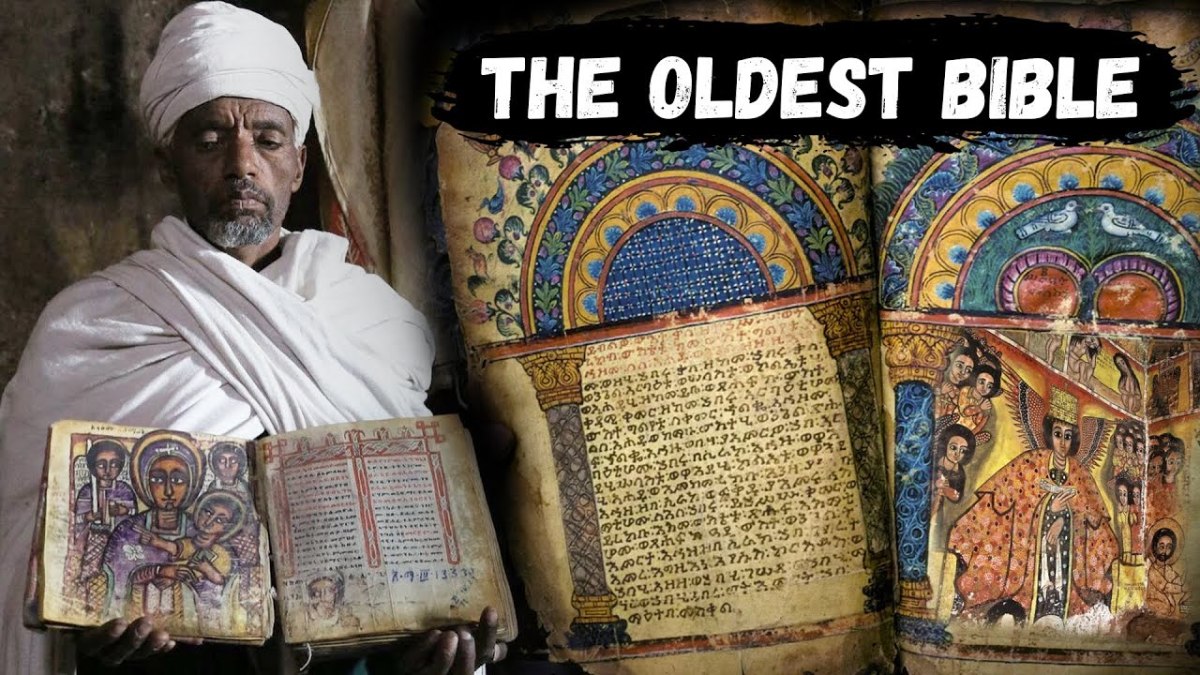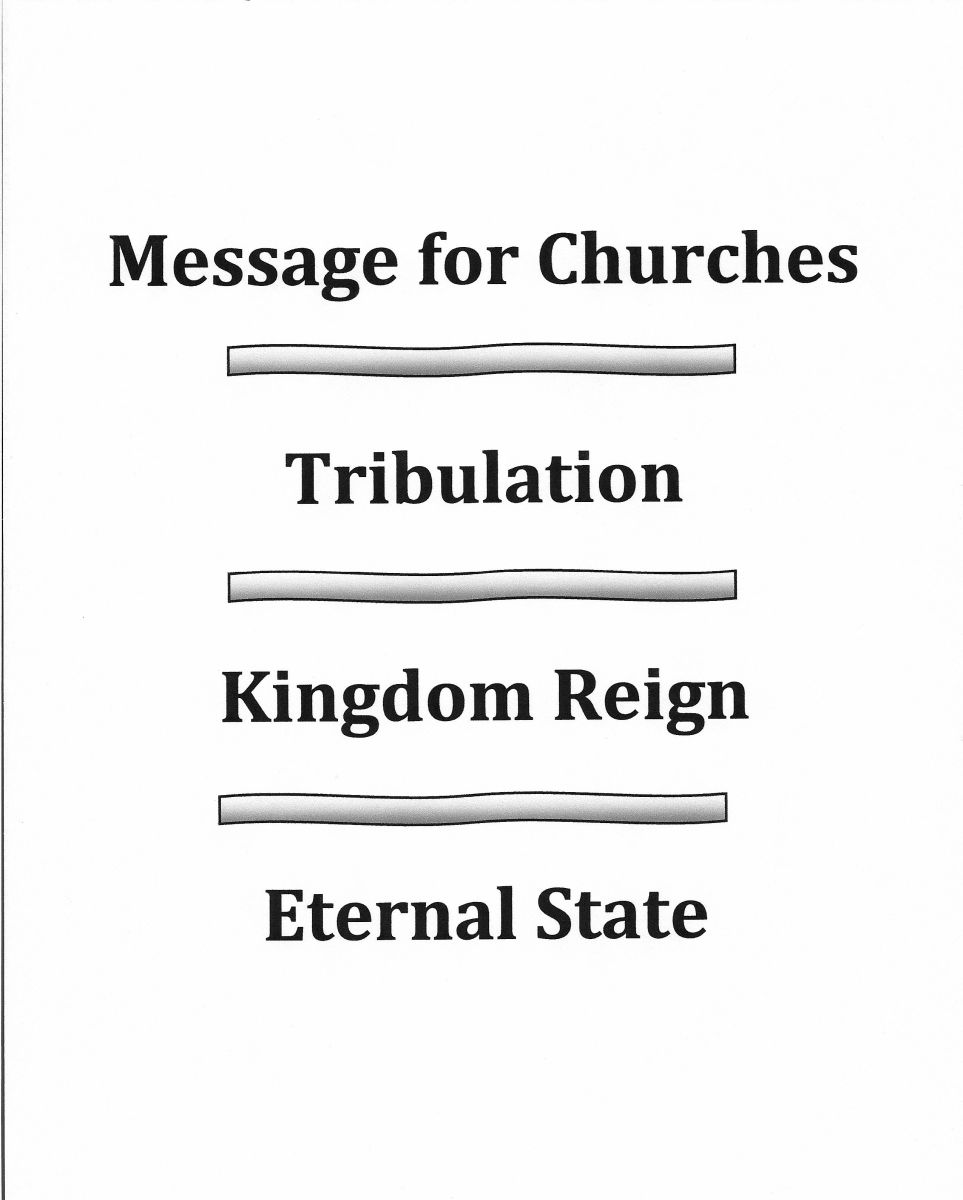Bible: What Does Deuteronomy 16-19 Teach Us About Israel's Feasts, King, Priest, Prophet, and Cities of Refuge?
Passover (Pesach)
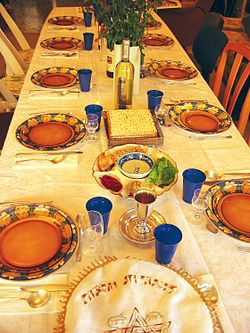
Israel's Yearly Feasts
Now Moses reviews the procedures observed during Israel’s yearly feasts: the Passover (vv. 1-8), the Feast of Weeks (vv. 9-12), and the Feast of Tabernacles (vv. 13-17).
Commemorating Israel’s redemption from Egypt, the Passover occurs in the month of Abib (v. 1).
The people must sacrifice their animals and eat their unleavened bread—the bread of affliction and haste—at that special site the LORD chooses (vv. 2-3; cf. 12:5).
Moses painstakingly explains:
(1) Israel must not have any leaven for a week,
(2) They must not leave any first-day meat overnight, and
(3) They must not sacrifice and roast the animal at any place other than in the special city, or at anytime except twilight (vv. 4-7).
(4) They must eat their unleavened bread six days, and do no work on the seventh (v. 8).
[A small piece of leavened bread placed in a batch of unleavened dough makes the whole lump leavened.
Moses wants no “leaven” from the old way of life to spread through the new].
A Very Special Pentecost (Weeks)
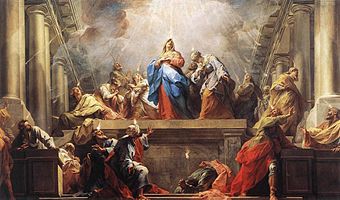
Tabernacles (Sukkoth)
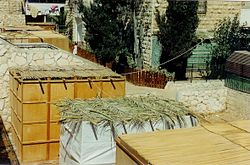
At the end of seven weeks, which start with the first harvesting of the grain, Israel will celebrate the Feast of Weeks (Pentecost), bringing a freewill offering to the LORD’s special city, and rejoicing with family, friends, servants, etc.
No one is excluded [vv. 9-12].
Another family and national feast occurs—the Feast of Tabernacles—lasting a full week in the LORD’s city (vv. 13-15).
This feast is the third yearly celebration all Israelite males must attend and bring an offering according as God has blessed them (vv. 16-17).
Following the review of the feasts, Moses discusses the subject of administering justice in the cities of Israel.
Appointed judges and officers must not “show partiality, nor take a bribe”; the author even supplies a moral reason for this prohibition (vv. 18-19).
If they do justly, they will live long on their inheritance (v. 20).
God’s people must not plant any Asherah or sacred pillars near any personal altars that they might build to the LORD (vv. 21-22).
The "Wisdom" of King Solomon
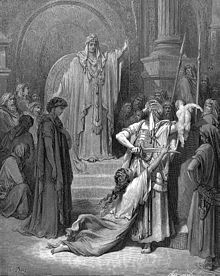
Deuteronomy 17
A prohibition against offering sacrifices with defects follows (v. 1; cf. 15:21).
If investigators find anyone participating in false worship—Moses lists several kinds of these transgressors—, they must stone the perpetrator (vv. 2-5).
However, two witnesses or more must testify against the guilty before the people carry out such a sentence, and they must “cast the first stones” (vv. 6-7).
In God’s “special city,” the “Supreme Court”—consisting of priests, Levites, and the judge—tries the most difficult cases (vv. 8-9).
It is the final court of appeal in this life; Israelites must abide strictly by its judgment (vv. 10-11).
Any “presumption” meets with immediate execution, putting an end to that behavior (vv. 12-13).
[The decisions of this court must have divine authority; otherwise, the court could not punish with death those who disagree with a ruling].
Moses foresees Israel’s desire to have the same kind of government as the nations (v. 14; cf. 1 Samuel 8).
Understanding human weaknesses, he admonishes them to follow several stipulations when setting a king over them:
(1) The king must be an Israelite, not a foreigner (v. 15);
(2) The king must not multiply horses for himself (namely, rely on military power instead of the LORD for protection) [v. 16];
(3) The king must not take many wives through diplomatic alliances [v. 17a];
(4) The king must not garner great wealth (silver and gold) [v. 17b].
[Solomon was undoubtedly the worst offender of all the Hebrew kings in the last three categories].
In addition to abiding by these wise precautions, the king must write himself a copy of the Law (v. 18), and read it every day.
Such diligent study will teach him the following valuable life lessons:
(1) To fear God;
(2) To observe all the words of torah;
(3) To keep/make him humble before his brethren; and
(4) to keep him doing exactly what God commands.
If the king performs well, he and his descendants will continue long in his kingdom (vv. 19-20).
Moses
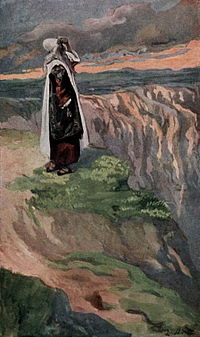
The "Prophet like me"
Who is the "Prophet like me"?
Deuteronomy 18
Leaving the king’s responsibilities, Moses now delineates the rights of the priests, the Levites (vv. 1-8).
Since Levites have no inheritance except the LORD, they survive by consuming Israel’s offerings to God (vv. 1-2).
Moses lists those items the Levites, as God’s chosen ministers, should receive from the other tribes (vv. 3-5).
A Levite who sells his inheritance, leaves his own town, and travels to serve in God’s special city must receive equal portions of food as the other Levites (vv. 6-8).
[How did this Levite come by an inheritance to sell?]
Moses now warns the people against wicked customs that they will encounter in Canaan (v. 9).
Verses ten and eleven list nine separate, but related pagan practices that Israel must avoid; this type of “spirituality” is not allowed among God’s people, who must be “perfect” before Him (vv. 12-14).
Finally, Moses treats of the role of the prophet in Israel (vv. 15-22).
Before instructing the people on how to distinguish between a true prophet and a false one (vv. 20-22), he foretells the coming of a “Prophet like me” whom Israel shall hear in lieu of Yahweh’s awesome voice (vv. 15-16).
Moses reminds them of God’s promise to raise up this Prophet in Whom He will put His word and through Whom He will speak (vv. 17-18).
Those who rebel against His teaching will suffer punishment (v. 19).
Men who presume to speak for God, but whose prophecies do not happen, the people shall put to death (vv. 20-22).
[True prophets, therefore, pass this test with a perfect score, for God always causes His word to accomplish what He sent it out to do (see Isaiah 55:10-11)].
The Purpose of the Cities of Refuge
view quiz statisticsDeuteronomy 19
Moses proposes the establishment of three cities of refuge; one will reside in each of the three divisions of Canaan after Israel dispossesses the inhabitants from their Land (vv. 1-3).
An unintentional manslayer may use prepared roads to flee to these places in order to escape the one seeking revenge (“the avenger of blood”) [vv. 4-6].
[The manslayer had “no malice aforethought.”]
Moses reiterates the command to separate these cities (v. 7); depending upon the LORD’s blessing, Israel may set apart three more to help eliminate the spilling of innocent blood (vv. 8-10).
However, the elders should not allow premeditated murderers to take advantage of these refuges, but hand them over to the avengers to execute the sentence dispassionately (vv. 11-13).
Between the discussion of refuge cities and the law concerning witnesses, Moses places a prohibition against removing the boundary lines/landmarks of one’s neighbor.
Such an action constitutes a violation of the commandment “Thou shalt not steal” (v. 14).
Verse fifteen states the general principle that two individuals must provide an oral witness to another individual’s sin or crime before judges may make a determination.
A witness must openly accuse someone of wrongdoing before judges and priests; if these men find that the facts show the witness to be false, then the witness shall receive the punishment due the accused (vv. 16-19).
This lex talionis judgment will cause fear among “those who remain” (vv. 20-21).
© 2013 glynch1


